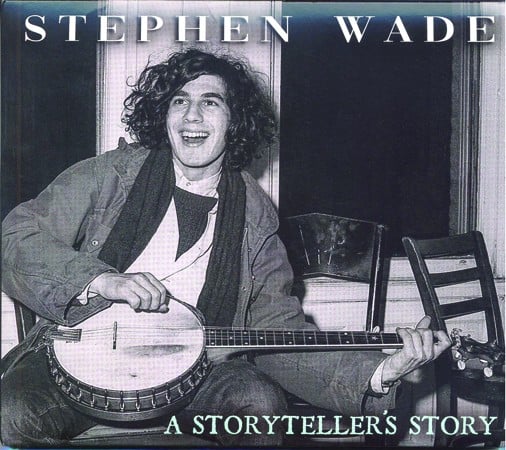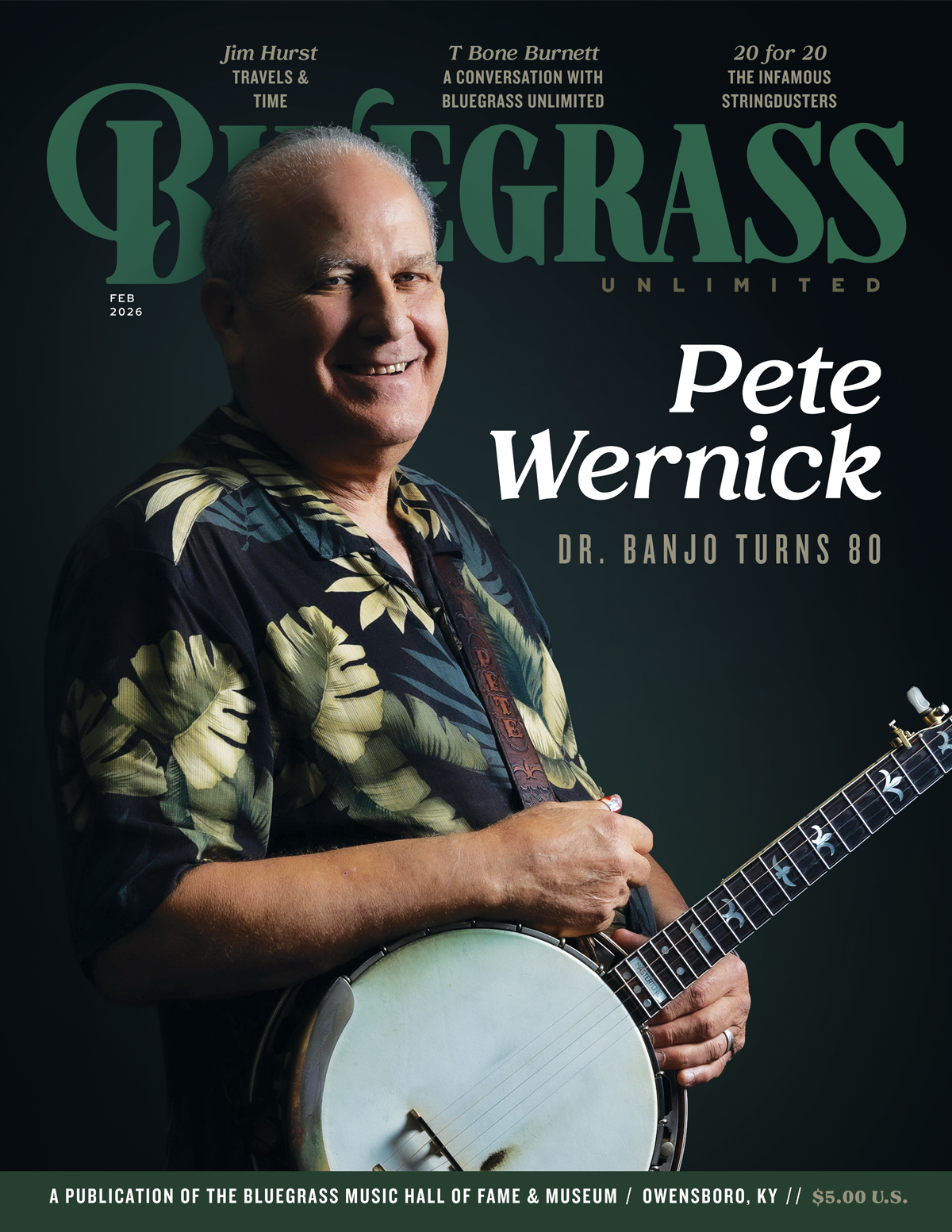STEPHEN WADE
 STEPHEN WADE
STEPHEN WADE
ACROSS THE AMERIKEE
Smithsonian Folkways
SFW40223
Stephen Wade is arguably the best nongrass five-string banjo player around. His loyal following includes people who saw Banjo Dancing, his one-man stage show created from folksongs, stories, banjo tunes, and his own personal insights. Among other venues, he presented it nightly at Washington’s Arena Stage for ten years, before his On The Way Home succeeded it for several more. The Beautiful Music All Around Us, his widely-acclaimed book, includes the origins of “Rock Island Line,” “Goodbye, Old Paint,” and “Bonaparte’s Retreat,” and demonstrates that the stories behind them can be as absorbing as the songs themselves.
Wade’s several previous CD collections offer old-time tunes in a variety of contexts. Those are good records, and Across The Amerikee is even better, presenting him as an unaccompanied soloist, much as he sounds in live performance. Per the liner notes, his goal is to celebrate old country and pre-grass music from the closing decades of the nineteenth century and the first years of the twentieth “in the burgeoning of coal camps and the closing of cattle trails, when the phonograph and radio provided the means for the first country/Southern music performers to express and document their music” and, occasionally, to earn some money from it.
This music is designed for listening rather than dancing, and Wade cultivates what Bill Monroe called ancient tones: angular melodies, archaic tunings, African-American Southern rhythm, and other components that make his banjo sound both antiquated and startlingly novel. Spirited banjo tunes occupy half the record; the rest include songs with banjo or guitar (no, no overdubs!), a guitar solo version of “KC Whistle”/“Steamboat Whistle Blues” in open E, and an engaging shaggy dog story about a stubborn anti-hero named “Hard Head Hardy.”
The Smithsonian Folkways package includes Wade’s generous annotations with essays, biographical and autobiographical notes, and song notes, too. They cite the provenance of each tune and how Wade executes it, just in case you want to pick up a banjo (or guitar) and try one out yourself. Producer Mike Melford and engineer Jim Robeson get special credit for the record’s clear, clean and forward sound, capturing Wade at his considerable best. (Smithsonian Folkways Recordings, 750 9th St. NW, Ste. 4100, Smithsonian Institution, Washington, DC 20560, folkways.si.edu.)RKS

